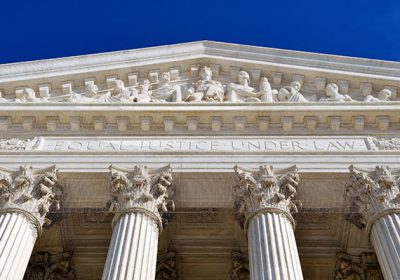People v. O’Daniel
24 N.Y.3d 134 (2014)
NY Court of Appeals
Decided on October 21, 2014
Contact a New York Criminal Appeals Lawyer
Issue:
Whether County Court violated defendant’s right to choice of counsel by denying two motions for adjournment when a secondary counsel had to step in weeks before trial due to primary counsel’s poor health.
Holding:
The Court of Appeals held that defendant was not deprived the right to choice of counsel by the denial of motions for adjournment.
Facts:
Defendant William O’Daniel was charged with two counts of rape in the first degree, once count of attempted rape in the first degree, two counts of sexual abuse in the first degree, and two counts of endangering the welfare of a child. He retained attorney Martineau to represent him, who was, at the time, suffering from a debilitating medical condition. In March 2010, Martineau requested an adjournment due to a flare-up of his condition. In April, following a hospitalization, Martineau requested another adjournment due to his condition, and the trial was rescheduled.
Martineau’s health was poor in the fall as well, so he identified a “second chair” who ended up taking over in September 2010. Bruno moved to adjourn the trial date, nothing that defendant believed he was receiving unfair treatment because of Martineau’s health. Bruno informed the court that he had “reviewed [defendant’s] entire file” and was “confident” that he could be prepared to go to trial the following week. County Court denied the adjournment motion. On the day of the trial, Bruno renewed the motion, stating that defendant was of the opinion that more time was needed to prepare for trial. The People opposed the motion and County Court denied it.
The jury found defendant guilty of all charges, and thereafter defendant moved to set aside the verdict under CPL 330.30. Bruno and Martineau filed affidavits stating that due to poor health, Martineau had been unable to assist with the trial, and Bruno had first reviewed defendant’s file just 12 days before trial. Defendant also argued that County Court’s denial of his motions for adjournment violated his right to retain his attorney of choice. The Appellate Division affirmed the judgement.
Analysis:
Trial Court has ‘Wide Latitude’ in Balancing Right of Counsel of Choice Against Fairness and Demands of Its Calendar
A defendant has a right under Federal and State Constitutions to choose who will represent him. However, “the right to counsel of choice is qualified, and may cede, under certain circumstances, to concerns of the efficient administration of the criminal justice system” (People v. Griffin, 20 NY3d 626, 630 [2013]). The Court of Appeals has held that a defendant may not use the right of counsel of choice “as a means to delay judicial proceedings…unnecessary adjournments for the purpose of permitting a defendant to retain different counsel will disrupt court dockets, interfere with the right of other criminal defendants to a speedy trial, and inconvenience witnesses, jurors and opposing counsel” (People v. Arroyave, 49 NY2d 264, 270 [1980]). In other words, appellate courts must recognize “a trial court’s wide latitude in balancing the right of counsel of choice against the needs of fairness and against the demands of its calendar” (US v. Gonzalez-Lopez, 548 US 140, 144 [2006]).
Defendant did not claim that he requested new counsel and that that request was wrongly denied, rather, he claimed that when his counsel moved for adjournment, County Court was obliged to inquire whether he was in fact seeking new counsel. The Court of Appeals disagreed, noting that the lower court did not violate any of defendant’s constitutional rights. Per the record, no communication was made to County Court that defendant was asking for the opportunity to retain new counsel, or that the adjournment was in the hope that Martineau would recover quickly enough to become his trial counsel. Defendant sought an adjournment to give Bruno more time to prepare. The lower court was under no obligation to inquire as to whether defendant sought new counsel. The order of the Appellate Divisions was therefore affirmed.
